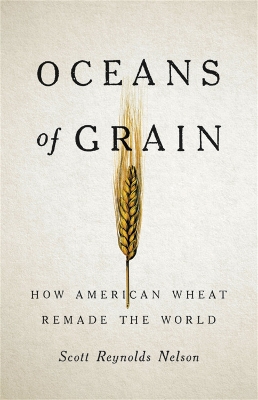
A revelatory global history shows how cheap American grain toppled the world's largest empires To understand the rise and fall of empires, we must follow the paths traveled by grain-along rivers, between ports, and across seas. In Oceans of Grain, historian Scott Reynolds Nelson reveals how the struggle to dominate these routes transformed the balance of world power. Early in the nineteenth century, imperial Russia fed much of Europe through the booming port of Odessa. But following the US Civil War, tons of American wheat began to flood across the Atlantic, and food prices plummeted. This cheap foreign grain spurred the rise of Germany and Italy, the decline of the Habsburgs and the Ottomans, and the European scramble for empire. It was a crucial factor in the outbreak of the First World War and the Russian Revolution. A powerful new interpretation, Oceans of Grain shows that amid the great powers' rivalries, there was no greater power than control of grain.
Remarkable History Of Wheat As Agent Of Change. This is one that I could make a case for either 4 or 5 stars for, and because of the doubt I ultimately sided with 5. The reason here is that while there is indeed considerable time spent on how American wheat of the Civil War/ Reconstruction era (and later) destabilized Europe and eventually led to the late 19th/ 20th/ 21st century histories we know and are actively living, there is also quite a bit establishing the history of wheat being a similar disruptor throughout all of recorded human history. Thus, while the description of the book paints it mostly as a tale of the past 150 ish years, it is actually a tale of the entirety of human existence and instead of the lasting points being about the more recent history, the lasting points (at least for this reader) are more about the overall history. Which was the crux of my internal debate. In other words, no matter the focus or points retained, this is a truly remarkable history of a particular commodity that gives a more complete understanding of major world events, particularly over the last 150 ish years. Very much recommended.
Reading updates
-
Started reading
-
20 February, 2022:
Finished reading
-
20 February, 2022:
Reviewed
